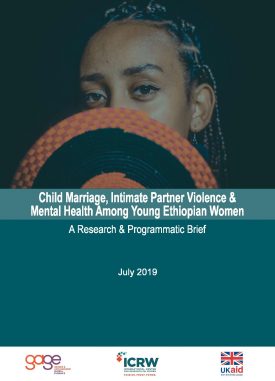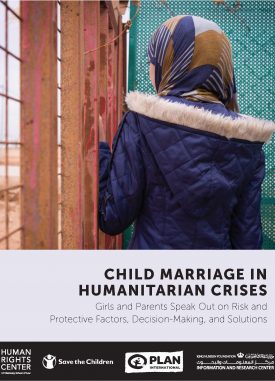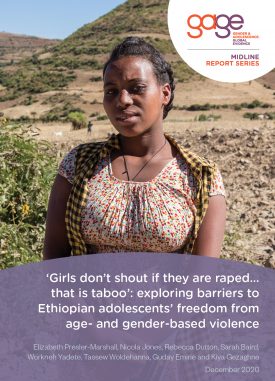There is a paucity of data on violence against women and girls (VAWG) during times of conflict in general and even less information specifically on violence against adolescent girls. Based on secondary analysis of a larger study on VAWG in South Sudan, this article highlights the specific experience of conflict-affected adolescent girls resident in the Juba Protection of Civilian sites. Quantitative data from a cross-sectional household survey shows that the prevalence of non-partner sexual violence (NPSV) (26.5%) and intimate partner violence (IPV) (43.1% of partnered respondents) was high among a cohort of girls who were of adolescent age during the 2013 crisis. Direct exposure to armed conflict increased the odds of respondents experiencing NPSV (AOR: 7.21; 95%CI: 3.94–13.17) and IPV (AOR: 2.37; 95%CI: 1.07–5.29). Quantitative and qualitative data also showed that patriarchal practices, compounded by poverty and unequal power relationships within the home, remain some of the primary drivers of VAWG even in conflict-affected settings. Prevention activities need to consider these wider underlying drivers of VAWG during times of armed conflict, as they remain key factors affecting violence against adolescent girls.
Suggested citation
Murphy, M., Bingheimer, J., Ovince, J., Ellsberg, M., Contreras-Urbina, M. (2019) ‘The effects of conflict and displacement on violence against adolescent girls in South Sudan.’ Sexual and Reproductive Health Matters 27(1) (https://doi.org/10.1080/26410397.2019.1601965)


